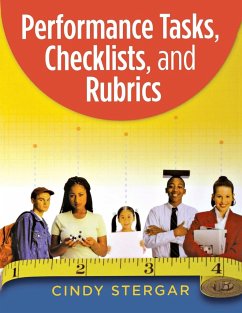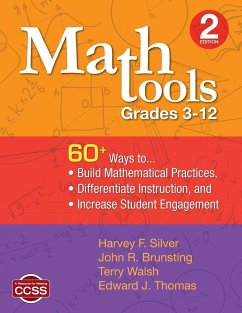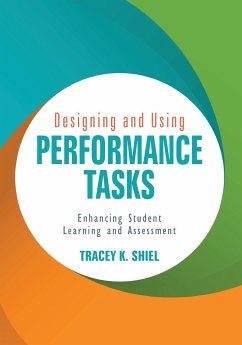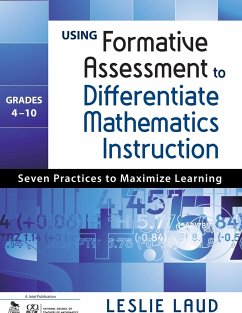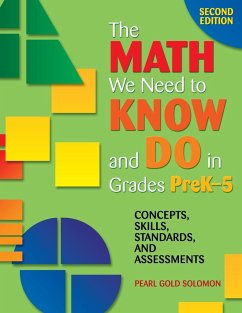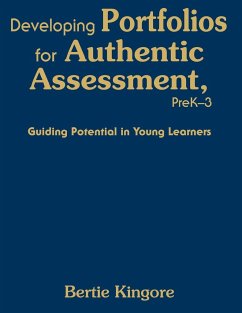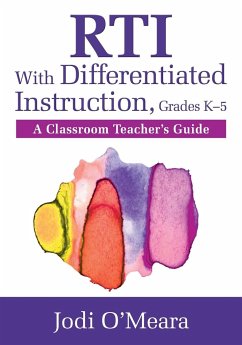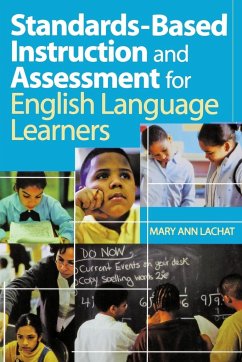
Nancy P. Gallavan
Broschiertes Buch
Developing Performance-Based Assessments, Grades 6-12
Versandkostenfrei!
Versandfertig in 1-2 Wochen

PAYBACK Punkte
18 °P sammeln!




This book guides educators through an assessment process that is fully integrated with the daily curriculum and designed to significantly improve student performance.
Nancy P. Gallavan is professor of teacher education in the MAT program at the University of Central Arkansas. She worked as an elementary and middle school teacher in the St. Vrain Valley and Cherry Creek School Districts of Colorado for twenty years while earning her master's degree from the University of Colorado and her PhD from the University of Denver. Prior to her current position, she was an associate professor of teacher education specializing in social studies and multicultural education at the University of Nevada, Las Vegas. Gallavan has authored more than sixty publications, including books, chapters, and articles in professional education journals. Her books include Secrets to Success for Elementary School Teachers (2007) and Secrets to Success for Social Studies Teachers (2008) with Ellen Kottler and What Principals Need to Know About Teaching Social Studies (2003). She is active in the American Educational Research Association (AERA), the Association of Teacher Educators (ATE), the National Association for Multicultural Education (NAME), and the National Council for the Social Studies (NCSS).
Produktdetails
- Verlag: Corwin
- Seitenzahl: 242
- Erscheinungstermin: 19. Dezember 2008
- Englisch
- Abmessung: 254mm x 178mm x 13mm
- Gewicht: 463g
- ISBN-13: 9781412969819
- ISBN-10: 1412969816
- Artikelnr.: 25053502
Herstellerkennzeichnung
Libri GmbH
Europaallee 1
36244 Bad Hersfeld
gpsr@libri.de
Für dieses Produkt wurde noch keine Bewertung abgegeben. Wir würden uns sehr freuen, wenn du die erste Bewertung schreibst!
Eine Bewertung schreiben
Eine Bewertung schreiben
Andere Kunden interessierten sich für




